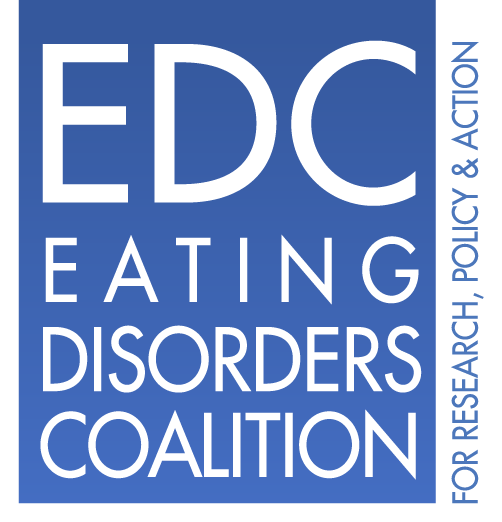THE ANNA WESTIN LEGACY ACT
In 2015, the bipartisan Anna Westin Act (H.R. 2515/S.1865) was introduced in the House and Senate. The Anna Westin Act was written to help those affected by eating disorders through improved health care professional training and clarity of mental health parity. In 2016, several provisions from the original bill text were integrated into the 21st Century Cures Act (P.L. 114-255) and passed into law.
This passage marked the first federal eating disorders legislation passed into law - a milestone for our community. Sections 13005, 13006, and 13007 were part of the final bill package, which included the U.S. Department of Health and Human Services Office of Women's Health updating published information on eating disorders, incorporating public resources into its obesity prevention programs, and advancing public awareness of eating disorders and allows the Department of Health and Human Services to facilitate the identification of model programs and materials for allowing and training health professionals on eating disorders.
ABOUT THE ANNA WESTIN ACT OF 2015
The Anna Westin Act, designed to have a zero or almost zero CBO score, was written to help those affected by eating disorders get the care they need by focusing on improved training and clarity of parity. In addition, the House version of the Anna Westin Act aims to promote truth in advertising and shed light on the harmful effects of altered body images in advertisements:
Training: The Anna Westin Act aims to help prevent eating disorders by using existing NIMH and SAMHSA funds to provide training for health professionals and school personnel to learn to identify eating disorders and intervene early when precursory symptoms and behaviors arise.
Clarity of Parity: The Anna Westin Act also aims to provide better treatment coverage for those affected by eating disorders by clarifying the congressional intent to include residential treatment in the implementation of the Paul Wellstone and Pete Domenici Mental Health Parity and Addiction Equity Act of 2008, affording the same protections as other illnesses and thereby decreasing out-of-pocket costs.
Truth in Advertising: The House bill (H.R. 2515) requires the Federal Trade Commission to study and report on whether regulation is needed for digitally altered images of people in advertising and if so, strategies to achieve regulation.
